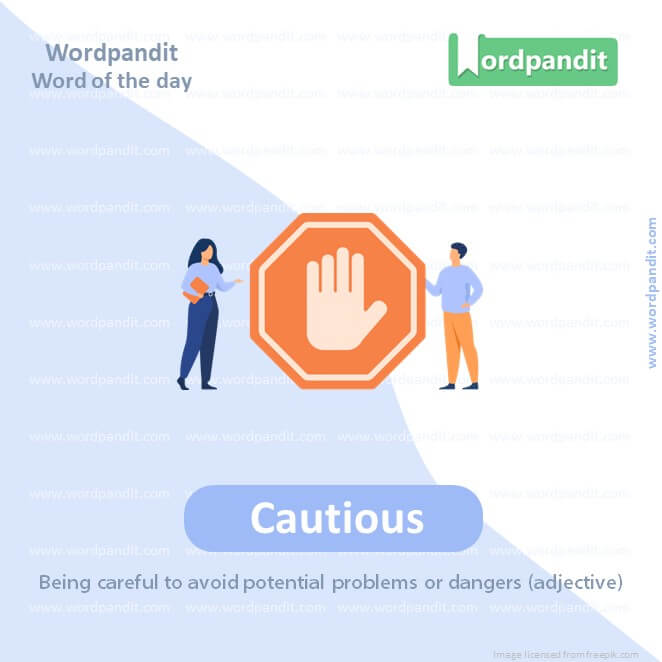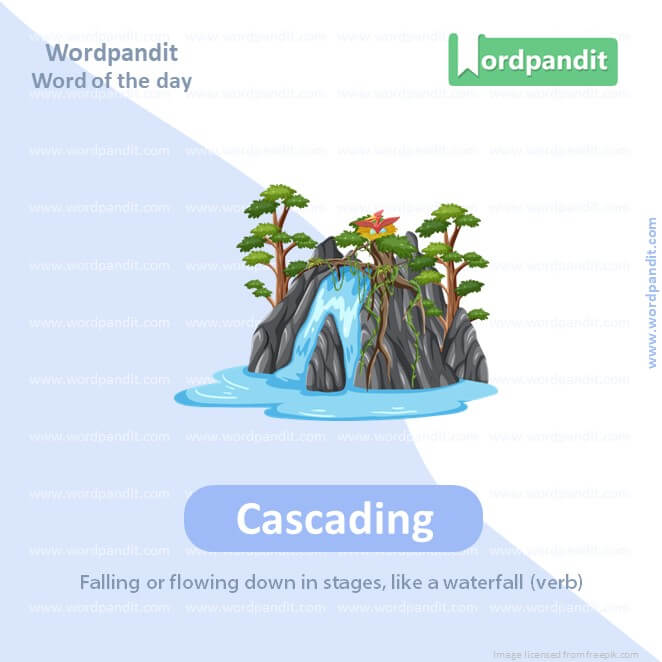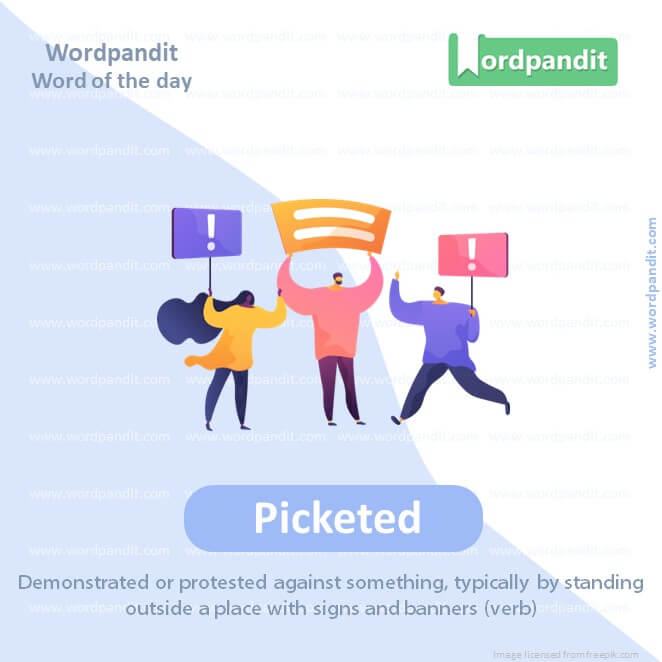Daily Vocabulary Words: List of Daily Used Words in Leading Indian Newspapers
Hi there. Welcome to this special section @ Wordpandit. Our endeavour here is straightforward: highlighting daily vocabulary words that you would come across in leading newspapers in the country. We have included the following newspapers in our selection:
• The Times of India
• The Economic Times
• Hindustan Times
• Mint
• Indian Express
We are putting in extensive work to develop your vocabulary. All you have to do is be regular with this section and check out this post daily. This is your repository of commonly used words; essentially, we are posting a list of daily used words. Hence, this has significant practical application as it teaches you words that are commonly used in leading publications mentioned above.
Visit the website daily to learn words from leading Indian newspapers.
WORD-1: Overarching
CONTEXT: Such an overarching system would potentially improve the effectiveness of economic instruments and would align with the “polluter pays” principle.
SOURCE: Hindustan times
EXPLANATORY PARAGRAPH:
Imagine an umbrella that covers everything when it rains, keeping it all dry. “Overarching” is like that big umbrella; it means something is the most important or covers everything else, like the main idea or rule.
MEANING: Including or influencing every part of something (adjective).
PRONUNCIATION: oh-ver-AHR-ching
SYNONYMS: comprehensive, overall, dominant, encompassing, prevailing
USAGE EXAMPLE:
1. The overarching theme of the book is about friendship and courage.
2. There was an overarching policy that applied to all departments in the company.
3. Her overarching goal was to improve education in rural areas.
4. The overarching narrative of the film tied all the characters together.
WORD-2: Streamlining
CONTEXT: In a recently published blog post, ICCT researchers showed how streamlining highway tolling data could help address data roadblocks faced by those working to decarbonize trucking.
SOURCE: Hindustan times
EXPLANATORY PARAGRAPH:
Think about making your toy cars go faster by clearing the track of any obstacles. “Streamlining” is like that; it’s making things simpler or more efficient, so everything works better and faster.
MEANING: The process of making an activity or process more efficient and effective, often by removing unnecessary steps (noun).
PRONUNCIATION: STREEM-lie-ning
SYNONYMS: simplifying, optimizing, improving, refining, enhancing
USAGE EXAMPLE:
1. The company is streamlining its operations to reduce costs.
2. Streamlining the process helped us complete the project faster.
3. The new software is aimed at streamlining data entry tasks.
4. They are working on streamlining communication within the team.
WORD-3: Scaling
CONTEXT: These can offer valuable insights when later scaling up these approaches.
SOURCE: Hindustan times
EXPLANATORY PARAGRAPH:
Imagine making your playdough model bigger or smaller to match the size you want. “Scaling” is like that; it’s about adjusting the size or level of something to fit or work properly.
MEANING: Adjusting the size, amount, or extent of something in proportion to a situation or requirement (verb).
PRONUNCIATION: SKAY-ling
SYNONYMS: resizing, adjusting, proportioning, enlarging, reducing
USAGE EXAMPLE:
1. The architect is scaling the model to show how the new building will look.
2. As the business grew, they began scaling up their operations.
3. Scaling down the project will make it more manageable.
4. The image was scaling to fit the screen size of the device.

WORD-4: Cautious
CONTEXT: Such cautious language on the prospects of the EFTA’s “committed investment” may have
SOURCE: Hindustan times
EXPLANATORY PARAGRAPH:
Imagine walking slowly and carefully, looking around to avoid stepping on your toys. “Cautious” means being very careful to avoid danger or mistakes, just like being careful where you step.
MEANING: Being careful to avoid potential problems or dangers (adjective).
PRONUNCIATION: KAW-shuhs
SYNONYMS: careful, wary, prudent, vigilant, circumspect
USAGE EXAMPLE:
1. She was cautious when crossing the busy street.
2. A cautious approach to investing can reduce the risk of loss.
3. He gave a cautious reply to the sensitive question.
4. It’s important to be cautious when dealing with unfamiliar situations.

WORD-5: Cascading
CONTEXT: which lies further down the road in a beautiful pool of cascading water, each step bearing a line from his speeches.
SOURCE: Hindustan times
EXPLANATORY PARAGRAPH:
Imagine a waterfall where water flows down over rocks in a series of small drops. “Cascading” is like that waterfall; it means something falling or flowing fast in a way that reminds us of water rushing down.
MEANING: Falling or flowing down in stages, like a waterfall (verb)
PRONUNCIATION: kuh-SKAY-ding
SYNONYMS:
tumbling, falling, flowing, plunging, spilling
USAGE EXAMPLE:
1. The cascading waterfalls in the forest were beautiful.
2. Information was cascading through the organization rapidly.
3. The garden featured a cascading fountain centerpiece.
4. Cascading effects from the economic downturn affected all sectors.

WORD-6: Eponymous
CONTEXT: Jim Crow was a pejorative term for a black man and the eponymous laws aimed at keeping a permanent lid on black self-esteem and aspirations.
SOURCE: Hindustan times
EXPLANATORY PARAGRAPH:
Imagine a book named after the main character, like “Harry Potter.” “Eponymous” refers to something that is given the same name as the person or thing it is related to, just like the book is named after Harry.
MEANING: Relating to, or being the person or thing for whom or which something is named
PRONUNCIATION: eh-PAH-nuh-muhs
SYNONYMS: namesake, titular, self-titled, self-named, homonymous
USAGE EXAMPLE:
1. The eponymous album of the band was a huge success.
2. She played the eponymous role in the play named after her character.
3. The company’s eponymous product became its bestseller.
4. The eponymous hero of the novel captured the hearts of readers.

WORD-7: Untrammelled
CONTEXT: Donald Trump’s ambitious plans of building a wall on the Mexican border as well as his untrammelled amplification of far-right bigotry had helped him garner the support of many Americans.
SOURCE: Hindustan times
EXPLANATORY PARAGRAPH:
Think about running freely in a big open field with no fences to stop you. “Untrammelled” means having no barriers or obstacles in the way, so you can move or act freely, just like running without anything to block you.
MEANING: Not limited or restricted; free (adjective)
PRONUNCIATION: un-TRAM-uhld
SYNONYMS: unrestricted, unrestrained, unobstructed, free, unlimited
USAGE EXAMPLE:
1. The artist enjoyed untrammelled creativity in her studio.
2. In the wilderness, they experienced the joy of untrammelled nature.
3. His untrammelled ambition led him to achieve great success.
4. The discussion was open and untrammelled, allowing for honest exchanges.
WORD-8: Unmissable
CONTEXT: In Atlanta’s downtown area, the homelessness is unmissable.
SOURCE: Hindustan times
EXPLANATORY PARAGRAPH:
Imagine a huge, colorful parade in your town that everyone talks about and goes to see. “Unmissable” is something so good or important that you should not miss it, just like the parade.
MEANING: So good or important that it should not be missed (adjective).
PRONUNCIATION: un-MIS-uh-buhl
SYNONYMS: indispensable, must-see, essential, crucial, vital
USAGE EXAMPLE:
1. The finale of the show was an unmissable event.
2. The article provides unmissable insights into the issue.
3. Her performance in the play was unmissable.
4. The museum’s new exhibit is unmissable for art lovers.

WORD-9: Picketed
CONTEXT: Instances were cited about how nightclubs were picketed by white mobs in order to prevent Aretha from performing there.
SOURCE: Hindustan times
EXPLANATORY PARAGRAPH:
Imagine a group of people holding signs and standing outside a store because they are unhappy with something the store did. “Picketed” means to protest outside a place to show you disagree with something or someone there.
MEANING: Demonstrated or protested against something, typically by standing outside a place with signs and banners (verb).
PRONUNCIATION: PIK-it-ed
SYNONYMS: protested, demonstrated, boycotted, striked, rallied
USAGE EXAMPLE:
1. The workers picketed outside the factory for better wages.
2. The community picketed the store that was selling harmful products.
3. Employees picketed against the unfair policies of the company.
4. The activists picketed the meeting to draw attention to environmental issues.
WORD-10: Signalled
CONTEXT: Jackson’s mayorship signalled a shift towards greater representation and inclusion of black leaders in local government.
SOURCE: Hindustan times
EXPLANATORY PARAGRAPH:
Think about waving your hand to a friend across the playground to come over. “Signalled” means using a gesture, action, or sound to send a message or show something is going to happen, just like your wave tells your friend to come to you.
MEANING: Indicated or communicated something by using a gesture, action, or sound (verb).
PRONUNCIATION: SIG-nuhld
SYNONYMS: indicated, gestured, beckoned, motioned, signaled (alternate spelling)
USAGE EXAMPLE:
1. The teacher signalled the end of the class by ringing a bell.
2. The traffic lights signalled it was safe to cross the road.
3. He signalled for silence by raising his finger to his lips.
4. The smoke signalled that there was a fire nearby.
Vocabulary Meaning and Examples
In the fascinating world of language learning, a method particularly impactful is learning ‘vocabulary meaning and examples’. Harnessing this dual approach of understanding words through definitions and relevant examples yields a sound vocabulary grasp. Let’s explore how we can effectively learn vocabulary using ‘meaning and examples’.
Foremost, recognizing ‘meaning and examples’ involves more than just a surface glance at the definition. It requires an engaged interaction with the word, placing it within a proper context. This enriches comprehension and facilitates an innate understanding of the word’s applications.
The process of learning ‘meaning and examples’ is made highly effective through varied resources. Reading literature, online articles, and language learning platforms offer numerous examples enriching the meanings. By frequently encountering a word in various contexts, the understanding of the ‘meaning and examples’ deepens, imprinting the word into long-term memory.
When learning ‘meaning and examples’, creating personal sentences is recommended. Develop your own examples using the given word. This personal connection between learned vocabulary and your everyday life context strengthens both familiarity and recall.
Moreover, taking notes while studying ‘meaning and examples’ goes a long way in mastering vocabulary. Jotting down the definition and a couple of examples for reference leads to better recall during revisions.
Finally, teach to learn. A tried-and-true method to solidify ‘meaning and examples’ is by explaining the word to someone else. This exercise forces you to articulate the word’s usage and understanding clearly, embedding it further in your memory.
In conclusion, the journey to learn ‘vocabulary meaning and examples’ is a rewarding process that involves a multifaceted approach. As you dive into the rich experience of understanding words through ‘meaning and examples’, you uncover the nuance and depth of language, enabling you to master it in its true sense.













